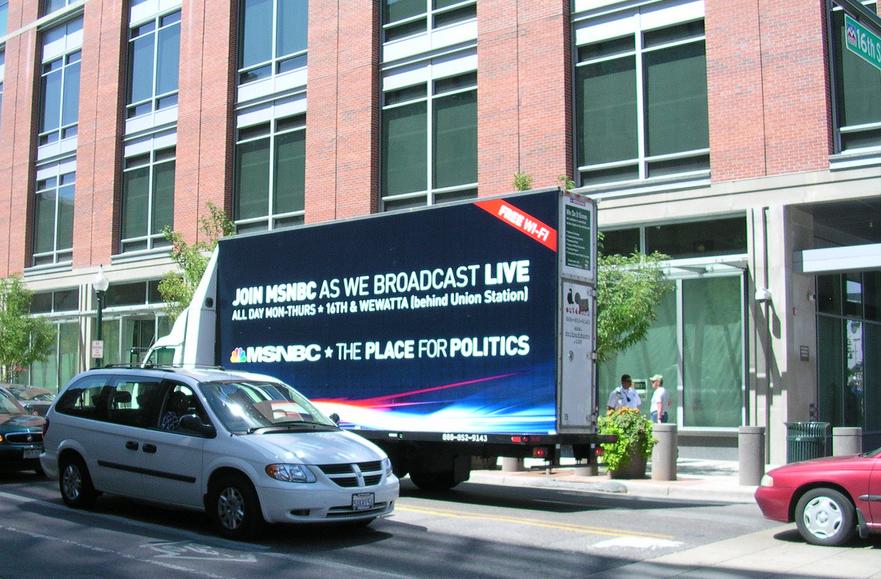Editor’s note: the following is a legal alert from BBK Law.
Ordinances Declared Content-Neutral
By Jeff Ballinger and Victoria Hester.
Municipal ordinances prohibiting mobile billboard advertising were recently upheld by a federal appeals court. The U.S. Ninth Circuit Court of Appeals found that the ordinances withstood First Amendment scrutiny as content-neutral, reasonable, time, place and manner restrictions on speech.
Between 2010 and 2012, the California Legislature enacted a series of amendments to the Vehicle Code empowering municipalities to regulate two types of mobile billboard advertising: advertisements affixed to portable, non-motorized wheeled vehicles, and advertisements attached to motorized vehicles. In response, five cities (Los Angeles, Santa Clarita, Rancho Cucamonga and Loma Linda) passed nearly identical ordinances banning both types of mobile billboards and permitting public officials to exact civil penalties and impound vehicles in violation. Los Angeles passed an ordinance prohibiting advertising signs painted or affixed to motorized vehicles that extend beyond the overall length, width or height of the vehicle, or make the vehicle unsafe to be driven. The other four ordinances make it unlawful to park a “mobile billboard advertising display” on any public street within city limits.
Local business owners who use mobile billboards to advertise sued the cities, claiming that the ordinances are facially invalid because they violate the freedom of speech guaranteed by First Amendment.
Although regulations affecting speech in traditionally public fora, such as sidewalks and city streets, are presumed to be invalid, government may impose reasonable time, place, and manner restrictions, if the regulation is content-neutral and narrowly tailored to serve a significant governmental interest. The plaintiffs argued that, because the ordinances at issue target only “advertising” and not other forms of speech, the ordinances are content-based. The court disagreed.
Distinguishing Reed v. Town of Gilbert — a 2015 U.S. Supreme Court case that struck down a city ordinance that regulated directional signs differently from other signs — the court held that the mobile billboard ordinances were content-neutral. In an opinion issued July 7, the court explained that, because the word “advertising” refers to theactivity of displaying a message to the public, not to any particular content that may be displayed, a regulation targeting advertising is not content based on its face.
In contrast to the ordinance at issue in Reed, the mobile billboard ordinances do not single out a specific subject matter for differential treatment. The court held that the ordinances were narrowly tailored to significant government interests in traffic control, public safety and aesthetics. In fact, the court held that the cities’ interest in aesthetics alone justifies the ordinances because the ordinances directly serve the stated interest. In addition, the ordinances left open adequate alternative opportunities for advertising — the plaintiffs were free to display the same advertising in a different manner.
The case is Lone Star Security & Video v. City of Los Angeles et al. (Case Nos. 14-55014 and 14-55050).
[divider] [/divider]

 If you have any questions about this opinion or how it may impact your agency, please contact the attorney author of this Legal Alert listed to the right in the firm’s Municipal Law practice group, or your BB&K attorney.
If you have any questions about this opinion or how it may impact your agency, please contact the attorney author of this Legal Alert listed to the right in the firm’s Municipal Law practice group, or your BB&K attorney.
Please feel free to share this Legal Alert or subscribe by clicking here. Follow us on Twitter @BBKlaw.
Disclaimer: BB&K legal alerts are not intended as legal advice. Additional facts or future developments may affect subjects contained herein. Seek the advice of an attorney before acting or relying upon any information in this communiqué.





